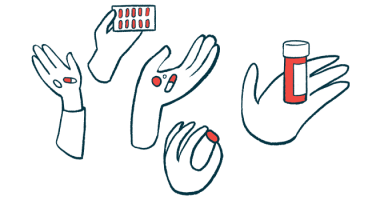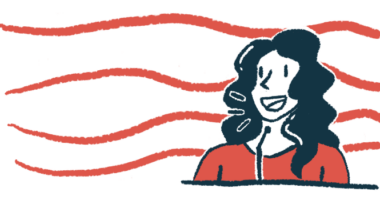$25K grants will help nonprofits counter DMD healthcare disparities
New grant program from Entrada makes first 3 DREAMS awards
by |

Entrada Therapeutics has awarded $25,000 grants to three U.S. nonprofits to aid in their efforts to combat healthcare disparities in the Duchenne muscular dystrophy (DMD) community.
The goal of these nonprofits, as inaugural recipients of the biopharmaceutical company’s DREAMS — Diversity, Representation, Equity and Advocacy Matters — grant program, is to better support underserved DMD patients, and promote inclusion and improved access for underrepresented communities.
The three winning nonprofits are the Akari Foundation, the Neurology and Neuromuscular Care Center, and Parent Project Muscular Dystrophy (PPMD).
The DREAMS awards, announced on World Duchenne Awareness Day on Sept. 7, are meant to support initiatives that seek to better identify and understand healthcare issues that disproportionately affect underrepresented or underserved DMD patients and families.
“Building on the power of World Duchenne Awareness Day, we’re thrilled to support the Duchenne community and those working to combat disparity in healthcare by awarding funding to three leading non-profit organizations that embody the mission of the DREAMS grant program,” Dipal Doshi, president and CEO at Entrada, said in a company press release.
New grant program will launch another funding round in 2024
Project proposals for the first year of the DREAMS grant program were anonymized, then reviewed, scored, and ranked by an independent committee of neuromuscular experts and patient advocates.
This panel, notable for its expertise in DMD and social impact and health, chose the three winners.
“These organizations are breaking barriers to improve diversity, equity, inclusion and accessibility, and we look forward to seeing their work in action as they continue to make a meaningful difference for the Duchenne community,” Doshi said.
For its part, the Texas-based Akari Foundation seeks to educate and empower the Hispanic community about rare disorders, with a focus on Duchenne. The nonprofit provides affected families with Spanish-language resources about disease awareness, education, and advocacy.
Akari will use its grant funds to empower Duchenne patients and families through increased awareness and education resources, while seeking to promote inclusiveness, diversity, and equal opportunities for all.
The Neurology and Neuromuscular Care Center, also in Texas, is a non-profit private practice that seeks to provide care to those with neuromuscular conditions such as Duchenne. The practice has a particular focus on ethnic minority patients who lack health insurance or are unable to pay for their care.
The grant will enable the center to hire its first mental health professional to provide emotional and social support to Duchenne patients and families, helping to further narrow healthcare gaps linked to socioeconomics.
A patient advocacy organization based in Washington, D.C., PPMD seeks to help Duchenne patients live longer and better lives. It will use its grant to further efforts to address disparities in care access and research opportunities based on race, geography, and socioeconomic diversity.
There’s no shortage of remarkable organizations in the Duchenne community, but this year’s recipients are leading the charge with their commitment to serving those who are currently underrepresented and in need of additional support and resources.
Sean Baumstark, co-host of the “Two Disabled Dudes” podcast, is a member of the grant program review committee.
“There’s no shortage of remarkable organizations in the Duchenne community, but this year’s recipients are leading the charge with their commitment to serving those who are currently underrepresented and in need of additional support and resources,” Baumstark said.
“On behalf of the DREAMS Review Committee, we congratulate these three vital organizations and we look forward to seeing the lasting impact that their work will continue to have on the Duchenne community,” Baumstark added.
The DREAMS grant program will reopen next spring for another funding round for U.S. nonprofits with Duchenne services. Grant applicants are encouraged to show collaboration with local community groups, particularly those led by minorities, that work to overcome barriers to health education and patient and family support. In addition to a detailed project description, applications must include a project budget and implementation timeline.
Entrada is developing a new class of therapeutics that use its proprietary Endosomal Escape Vehicle (EEV) technology, which enables efficient delivery of cargo into cells while avoiding the cells’ natural degradation system.
A number of therapies are in preclinical testing for Duchenne, and the company is planning to file an application with the U.S. Food and Drug Administration asking to initiate clinical trials testing ENTR-601-45. The therapy is meant for DMD patients who have mutations that respond to exon 45 skipping.








